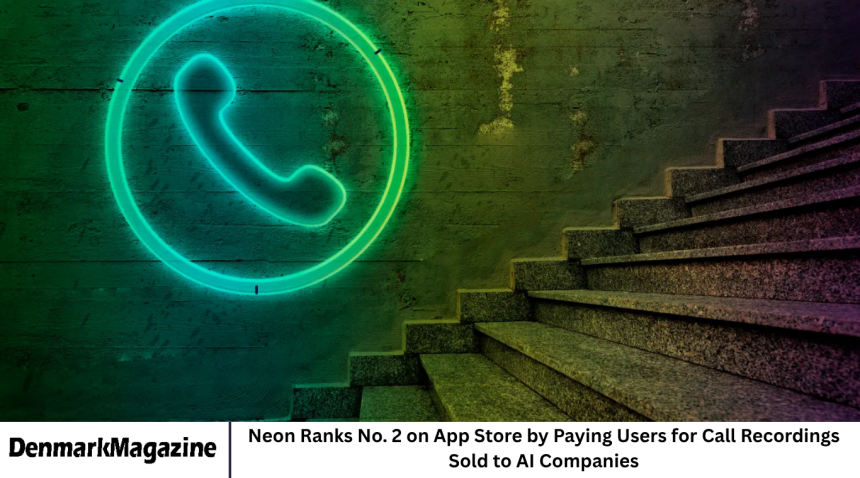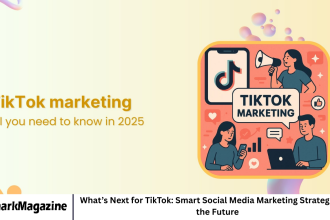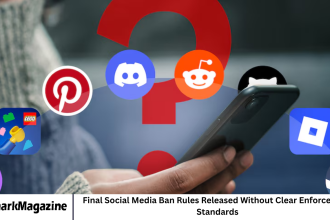A new social app called Neon is quickly climbing the charts, becoming the second most popular social platform on Apple’s App Store. What sets it apart from traditional apps like Instagram or TikTok is its controversial business model. Neon pays users to record and upload their phone calls, which are then sold to artificial intelligence companies for research and training purposes. This approach has sparked both fascination and concern, raising questions about privacy, data ownership, and the ethics of monetizing personal conversations.
How Neon Works
Neon’s concept is simple but highly unconventional. After users download and install the app, they can enable call recording for incoming and outgoing calls. In return, Neon compensates them based on the length and number of calls recorded. The recorded conversations are then processed, anonymized, and sold to AI firms developing speech recognition and natural language processing systems.
The idea behind Neon is to create a massive real-world dataset of human conversations, which can help train AI to better understand tone, emotion, accents, and everyday language. According to the company, all recordings are anonymized before being shared, ensuring that no identifiable personal details are disclosed. However, privacy experts remain skeptical, arguing that even anonymized data can sometimes be traced back to individuals through voice patterns or contextual clues.
Why AI Companies Are Interested
Artificial intelligence systems require enormous amounts of human speech data to improve their ability to understand and generate language. Companies building chatbots, voice assistants, and transcription tools rely heavily on such datasets. By partnering with Neon, AI developers can access a wide range of real-life audio data that captures natural human interaction, unlike the scripted or staged conversations often used in traditional training datasets.
This type of real-world data helps refine AI models to better recognize emotions, regional dialects, and conversational nuances. As a result, AI companies see Neon as a valuable source of high-quality material to improve their systems’ realism and responsiveness.
Privacy Concerns and Ethical Questions
Despite its growing popularity, Neon’s model has drawn criticism for its potential impact on privacy. Recording phone calls inherently involves capturing another person’s voice without explicit consent, especially if the other party is unaware that the call is being recorded for data collection. In many countries, including parts of the United States and Europe, recording conversations without consent can violate privacy laws.
Neon claims that it complies with legal requirements by displaying clear notices and offering consent options for both participants in a call. Still, privacy advocates warn that the system’s reliance on user honesty may not be sufficient. Furthermore, even anonymized data can include sensitive information, such as references to locations, financial transactions, or personal relationships, which could be misused if not properly handled.
Ethical debates are also emerging around the concept of “data monetization.” While Neon gives users the opportunity to profit from their personal data, it raises questions about the fairness and safety of selling one’s private conversations for money. Critics argue that users might not fully understand what they are giving up in exchange for payment, especially if they are motivated by financial need rather than informed consent.
The Popularity Behind Neon’s Rapid Growth
Neon’s sudden rise on the App Store highlights the growing interest in apps that offer users financial incentives. In an era where many social media platforms profit from user data without offering compensation, Neon presents itself as a more transparent alternative by paying users directly.
Younger audiences, particularly those interested in tech and AI, have been quick to experiment with the app. Many see it as a way to earn passive income while contributing to technological advancement. Social media discussions and reviews suggest that curiosity about how the app works — combined with the lure of real payments — has fueled a surge in downloads.
However, Neon’s success also reflects broader changes in how people view data ownership. Users are becoming more aware that their personal information holds significant value, and apps like Neon are tapping into this shift by offering to share the profits.
How Neon Pays Users
Neon operates on a payment model that rewards users based on call duration and quality. The app analyzes audio recordings to determine their usefulness for AI training, and users receive compensation accordingly. Payments are typically made through digital wallets or online transfer systems.
The company has stated that its algorithms automatically filter out low-quality or irrelevant data to maintain the integrity of its database. This means that users are encouraged to make natural, clear, and meaningful calls if they want to maximize their earnings. The more varied and authentic the conversations, the higher the potential payout.
Legal and Regulatory Challenges
As Neon expands, it faces mounting scrutiny from regulators. Data protection authorities in several countries have expressed interest in examining how the company collects, processes, and shares user data. Depending on the jurisdiction, Neon may be required to obtain consent not just from users but also from every participant in recorded calls.
Legal experts point out that privacy laws such as the General Data Protection Regulation (GDPR) in Europe and various U.S. state-level wiretapping laws impose strict requirements for audio recording. If Neon fails to comply, it could face heavy fines or even be banned from certain markets.
The company insists that it is taking all necessary precautions and has built its system with privacy safeguards in mind. Nonetheless, as data privacy becomes a more prominent global issue, Neon’s business model is likely to remain under the microscope.
The Debate Over Data Ownership
Neon’s rise also reignites a long-standing debate about who truly owns personal data. Traditional social media companies like Facebook, TikTok, and Instagram collect massive amounts of user information, often without providing direct financial benefits to their users. Neon flips this model by allowing users to sell their data voluntarily.
Supporters argue that this is a fairer approach, empowering individuals to profit from their digital footprint. Critics, however, worry that it commodifies privacy in ways that could be exploitative, especially for people who may not fully understand the risks. This debate extends beyond Neon and touches on the future of how society values personal information in the digital economy.
The Future of Neon and Data-for-Cash Apps
If Neon continues its rapid growth, it could pave the way for a new generation of apps that offer payment for personal data. Similar platforms could emerge, rewarding users for sharing browsing habits, messages, or even biometric data, all in the name of improving AI.
However, sustaining such a business model will depend on maintaining public trust. Users must believe that their data is handled securely, ethically, and transparently. Governments and tech regulators may also intervene to establish clearer rules around consent and compensation in the data economy.
For AI companies, access to authentic human conversations could accelerate advancements in voice recognition, translation, and conversational intelligence. But for society, it raises a difficult question: how much privacy are people willing to trade for money and convenience?
Frequently Asked Questions
What is Neon
Neon is a social app that pays users to record their phone calls. The recordings are anonymized and sold to artificial intelligence companies for research and model training.
Is Neon safe to use
Neon claims to anonymize all data and follow privacy laws, but experts warn that even anonymized recordings can sometimes reveal personal details. Users should exercise caution.
How much can users earn from Neon
Payments depend on the number, duration, and quality of recorded calls. Longer and more natural conversations typically earn higher rewards.
Is recording phone calls legal
The legality of recording calls varies by country and state. In some regions, both parties must consent to being recorded, while others allow one-party consent.
Why do AI companies want recorded calls
AI developers use real human conversations to train systems that recognize speech, understand tone, and interpret context more accurately.
Conclusion
Neon’s rise to the top of the App Store marks a fascinating yet controversial turning point in the relationship between technology, privacy, and profit. By paying users for their recorded phone calls, the company has found a new way to gather valuable data for AI training — but it has also sparked debates about consent and ethics.
As the world becomes increasingly digital, the line between privacy and progress continues to blur. Neon’s model challenges users to reconsider how they value their personal information and whether selling it for a few extra dollars is worth the potential risks. While some view it as innovation, others see it as a warning about the future of data exploitation. Only time will tell whether Neon’s approach will become a blueprint for the next wave of social platforms or a cautionary tale of technology gone too far.










